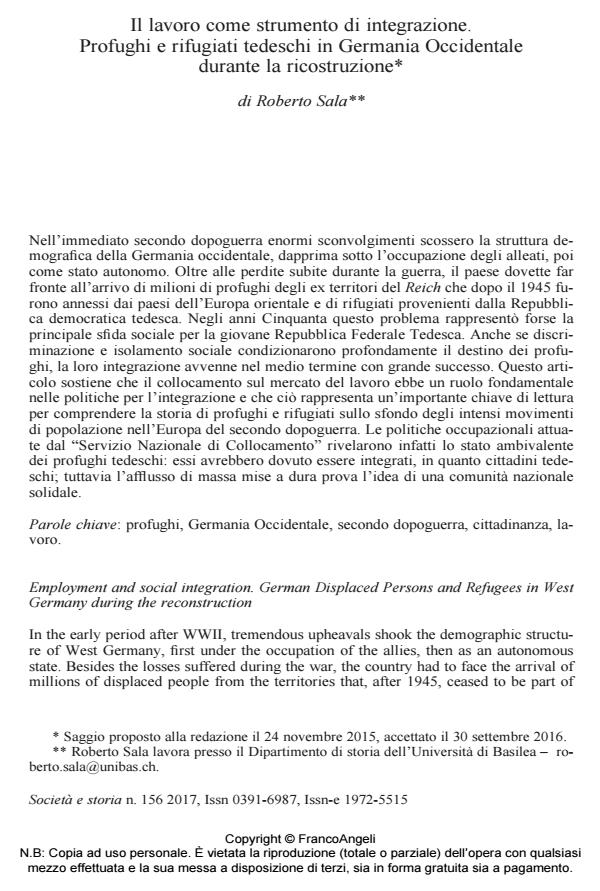Employment and social integration. German Displaced Persons and Refugees in West Germany during the reconstruction
Journal title SOCIETÀ E STORIA
Author/s Roberto Sala
Publishing Year 2017 Issue 2017/156
Language Italian Pages 22 P. 321-342 File size 74 KB
DOI 10.3280/SS2017-156004
DOI is like a bar code for intellectual property: to have more infomation
click here
Below, you can see the article first page
If you want to buy this article in PDF format, you can do it, following the instructions to buy download credits

FrancoAngeli is member of Publishers International Linking Association, Inc (PILA), a not-for-profit association which run the CrossRef service enabling links to and from online scholarly content.
In the early period after WWII, tremendous upheavals shook the demographic structure of West Germany, first under the occupation of the allies, then as an autonomous state. Besides the losses suffered during the war, the country had to face the arrival of millions of displaced people from the territories that, after 1945, ceased to be part of Germany, and of the refugees from the German Democratic Republic. In the 1950s, this issue represented perhaps the main social challenge of the young Federal Republic. Although discrimination and social isolation deeply influenced the displaced persons’ standing, their integration was successful in the long run. This article argues that their placement on the labour market played a major role within policies. This is an important key to understand the history of the displaced people and refugees against the background of the intense population movement in post-war Europe. Through the history of the the National Employment Service, one may see that employment policies revealed the ambivalent status of German displaced people and refugees. On the one hand, they had to be integrated as they were citizens of the Federal Republic. On the other, the enormous problems resulting from mass immigration deeply challenged the idea of a national community.
Keywords: Refugees, West Germany, post-WWII period, citizenship, employment.
- La storia economica contemporanea in quaranta anni di "Società e storia" Marco Doria, in SOCIETÀ E STORIA 178/2023 pp.783
DOI: 10.3280/SS2022-178007
Roberto Sala, Il lavoro come strumento di integrazione. Profughi e rifugiati tedeschi in Germania Occidentale durante la ricostruzione in "SOCIETÀ E STORIA " 156/2017, pp 321-342, DOI: 10.3280/SS2017-156004